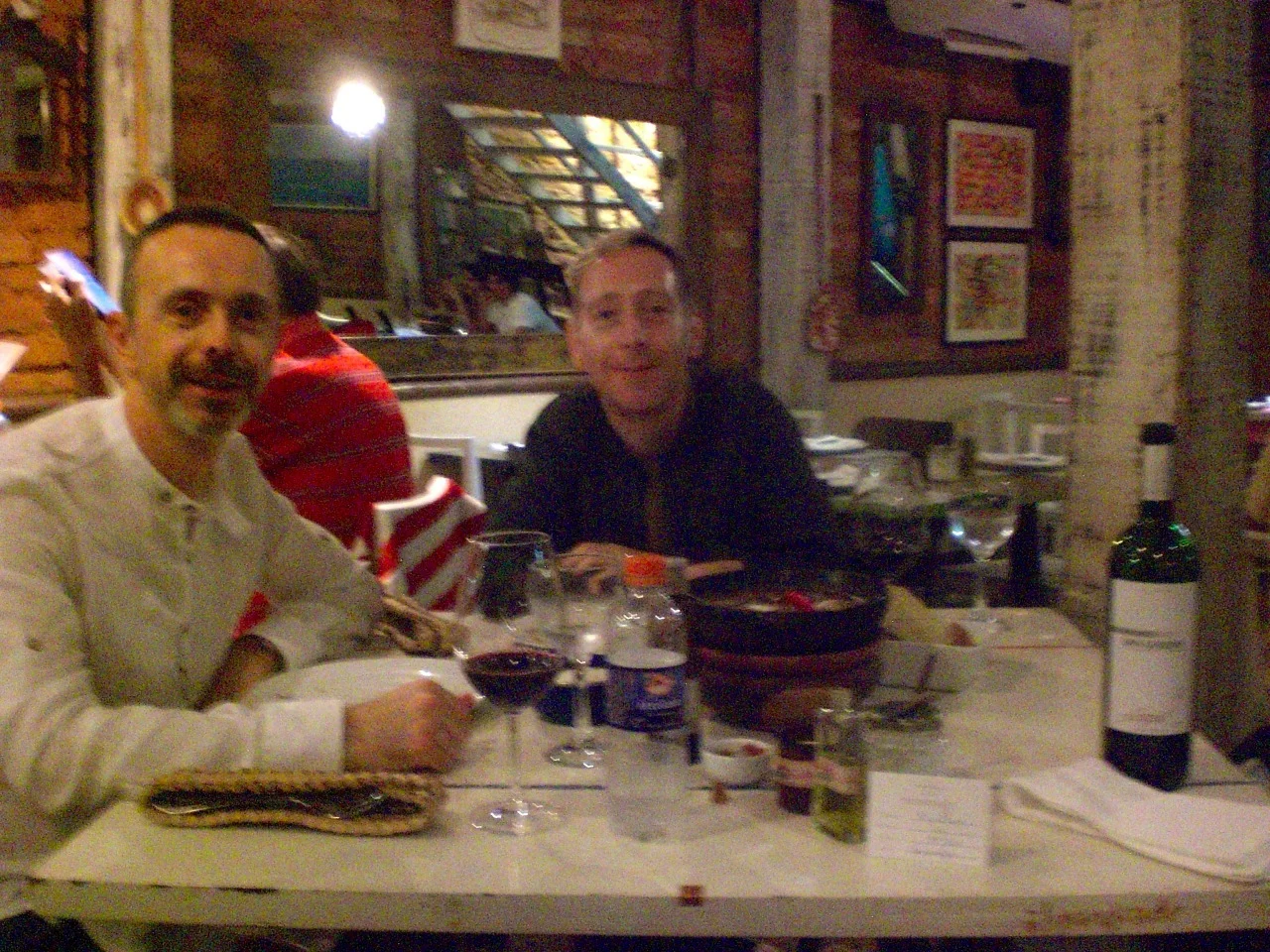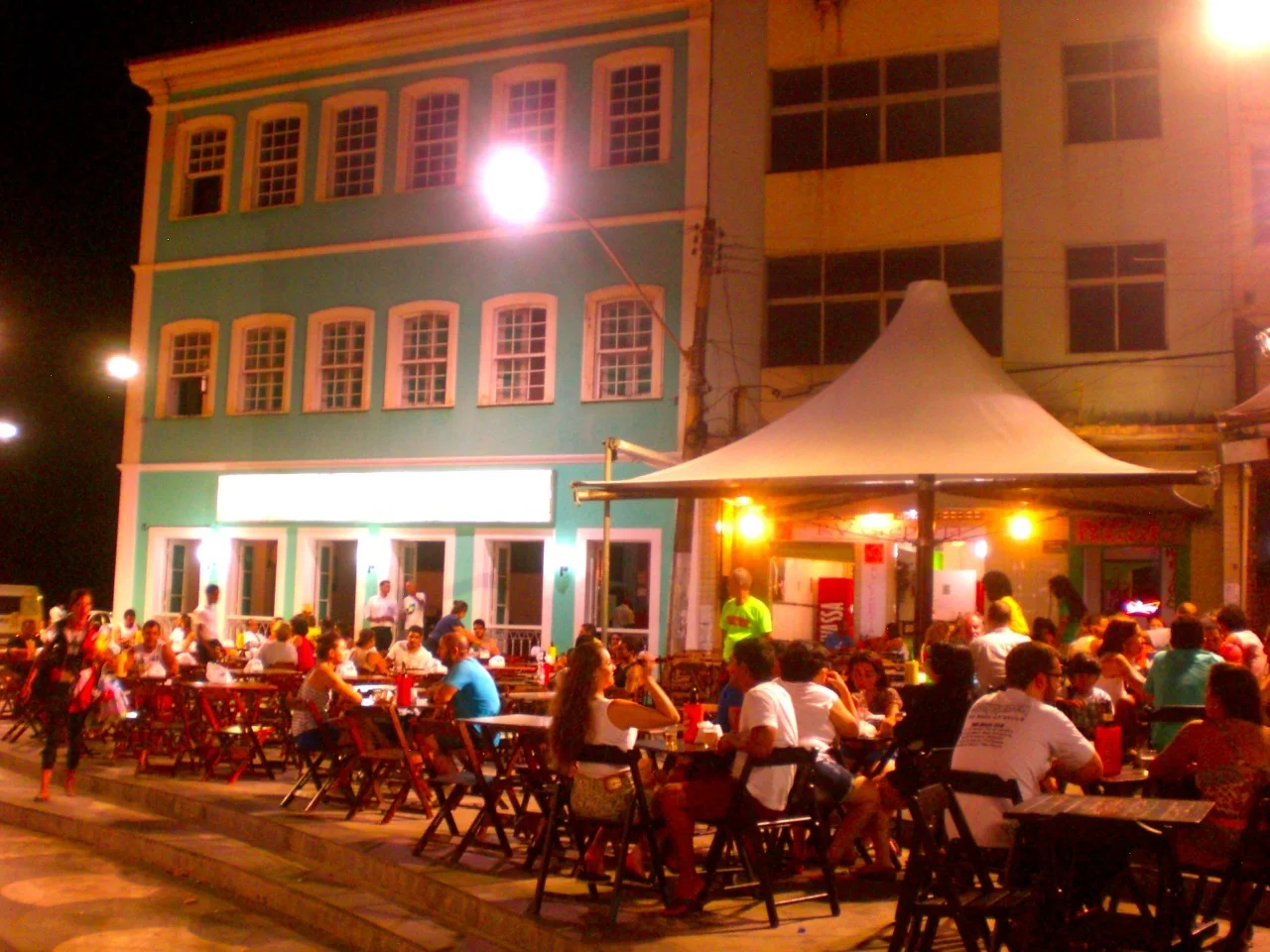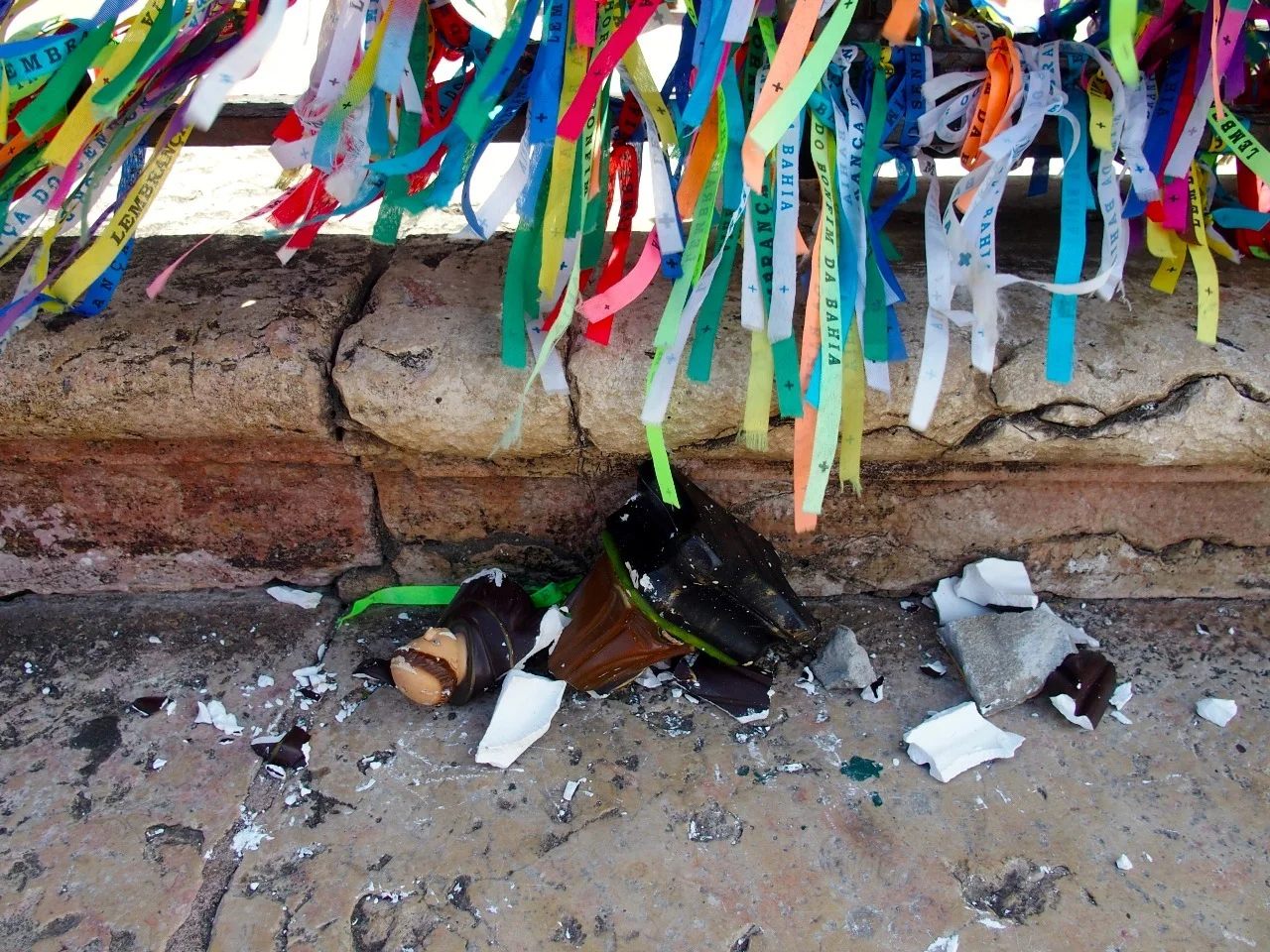Salvador, Brazil
I've got four of them. Red, livid welts on my ankles. Nasty victories for the little bastards we'd done so much to protect ourselves from last night. But despite the long sleeves and trousers plus high factor deet repellent we'd sprayed in the evening, the mosquitos had got us both at lunch time in the hotel garden without us noticing. So for breakfast in the same place it's time for drastic measures - Marmite!
As a life-long fan I'm used to it, but despite being advised to consume it by the nurse before we went to Sri Lanka last year, Coman still detests the stuff. However, for the sake of his health - after all both Dengue fever and the Zika virus are rife round here - Coman manfully chomps on his toast through gritted teeth. It helps that we're also served an enormous banquet of pineapple, papaya and mango, scrambled eggs, cassava, ham and cheese, copious cakes and pastries and gallons of guava and orange juice alongside huge pots of coffee. However many times we ask them to stop, the dishes keep coming. At least it takes away the taste of Marmite from poor Coman's mouth.
Suitably fortified we meet Marcus at the main square, Terroir de Jesus. He's dressed all in white as he's a follower of Condomblé and Good Friday is a day for him to worship his African gods alongside the Catholic rituals. He tells us that he lived in Peloruinhio until he was 11 but then the family were moved so their house could be renovated by the government. Of course the government never returned their house to them so they went to live with his grandmother. A Condomblé priestess she taught him in the ways of the ancient gods, a practice he follows to this day. She died aged 104, having been brought from Nigeria as a baby when her mother was sold into slavery, one of the last Africans to be shipped across the Atlantic before its abolition in 1888.
We drive through downtown Salvador, where slaves and prostitutes were historically housed, and then through the upmarket district of Vittoria, grown wealthy through the vast petrochemical industry which is Salvador's main source of income since the decline of the coffee and sugar plantations.
Our first stop is in the swanky beachside area of Barra. With private beaches and marinas for the moneyed elite who don't want to mix with ordinary folk, Marcus is witheringly disparaging as we gaze across a public beach. "Here you have happy people," he says, pointing out the areas for families, gays, surfers and 'lovers of the Mary Jane'. "The rich think they're above this, but after three caipirinhas they're all the same!"
We walk around the fort and get kisses from a Bahian maid before driving on down the coast following the carnival route through Ondina until we get to the up and coming area of Rio Vermelho, so called because once a year the sun sets in a specific spot on the ocean horizon that turns the river flowing into it a deep red. An old fishing town it has a little church dedicated to the African fishing god Yemanjá, and a bronze statue of her in a traffic intersection, however the town is now more famous for its nightlife and Marcus recommends we return this evening, giving us a good restaurant tip which we duly book.
We drive on through the city past vast favelas clinging perilously to the hillsides, nestling cheek by jowl with brand new skyscrapers for the fast-emerging middle class. Dominating one area is the football stadium which will play host to ten games during the Olympics this summer. In front of it is a lake with huge statues of the African deities in its centre.
Swinging back to the coast we continue around the bay, past pretty beaches and dilapidated houses until we climb the hill to reach Bomfin church. Beloved by Salvadoreans it mixes Condomblé with Catholicism and is renowned for its miracles, with prayer ribbons festooning the railings around the church with multi-coloured flutters and a side room full of plastic body parts representing the ailments the faithful want cured. A Good Friday service is taking place as we wander around, tourists and congregation taking photos with equal dedication.
A final stop at Fort Monte Serrat affords spectacular views of the city before we return to Baixa Ciadade (Lower City) where we visit yet another spectacular church, apparently the oldest in the city, where they are enacting the Passion Of Christ as we sneak a peek. The Lower City is connected to Alta Ciadade (Upper) by the Elevador, a lift which takes passengers 80 metres up a sheer cliff side back to Pelourinhio, so we ride it back up and head towards our hotel.
We pop into Mama Bahia, a restaurant opposite the hotel, to get a traditional stew called a Moqueca. We opt for the fish version and it comes with rice, manioc flour, cassava and a hot chilli sauce on the side. Utterly delicious and all accompanied by a folk singer imploring us to be "sexy, sexy, sexy", somewhat unrealistically.
Back at the hotel we both lie down for a moment and somehow we awake more than 90 minutes later having had an unexpected siesta. We blame it on the heat and humidity sapping our energy rather than the lunchtime wine.
We're just about to leave for an evening in Rio Vermelho when we're disturbed outside our window by a huge parade. Following it up to the Terroir de Jesus we encounter an open air service led by a bishop, with nuns and monks in attendance and a full panoply of Passion players to boot. Negotiating our way through the crowds we hop in a taxi as dusk is falling, along with a light shower and 20 minutes later we're back in Rio Vermelho, walking along the promenade soaking in the scenery.
We have drinks in the plaza and then wander over to a stage on the beach where around 8000 people are watching a quite spectacular outdoor Passion play. It's a major production that would grace a West End stage and we watch a number of set pieces including various miracle sequences before we have to leave for our dinner reservation.
We're booked into Casa de Tereza, a funky restaurant serving traditional Bahian cuisine in a cool setting - at slightly eye-watering prices. We opt for a Brasileirinho, which is a beef Moqueca with poached eggs washed down with a Brazilian cabernet sauvignon.
A cab ride later and we're back at the hotel, opting for an early night rather than partying with the bigger and bigger crowds now filling the town. We chat to Didier and David, the French couple who restored the Casa do Amarelindo and are having a cocktail in the lobby as we arrive.
They had moved to Brazil with work fifteen years ago and rather than return home when their contracts ended had opted for their dream of jacking in the rat race and building a tropical guesthouse. They're now hoping to sell and retire but buyers are thin on the ground. A lesson that you can be trapped in paradise.
We retire instead to bed...




























































